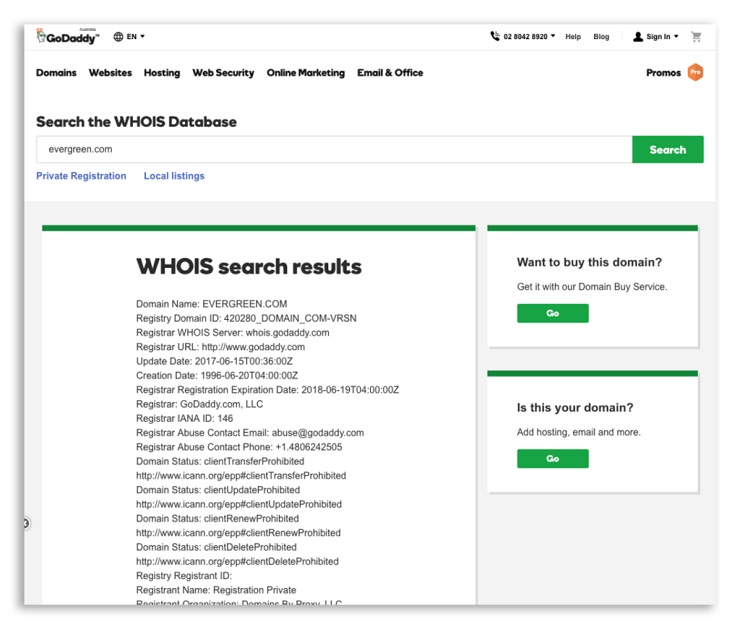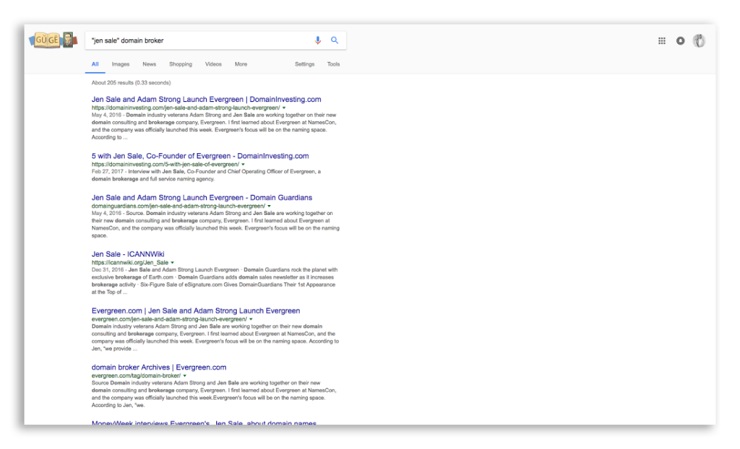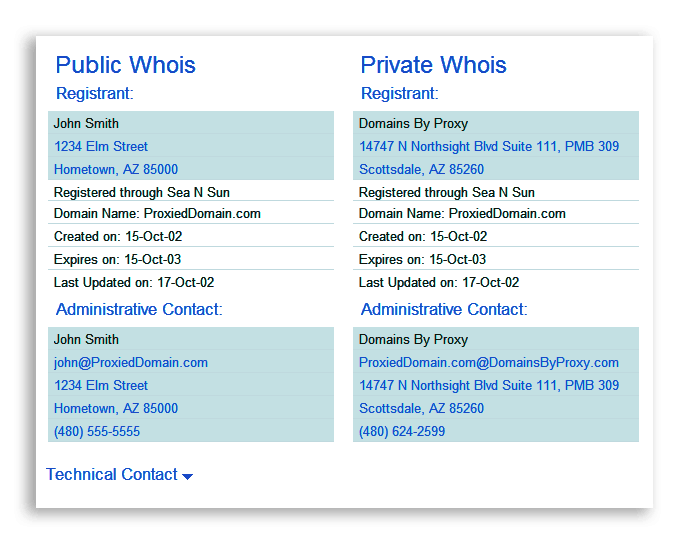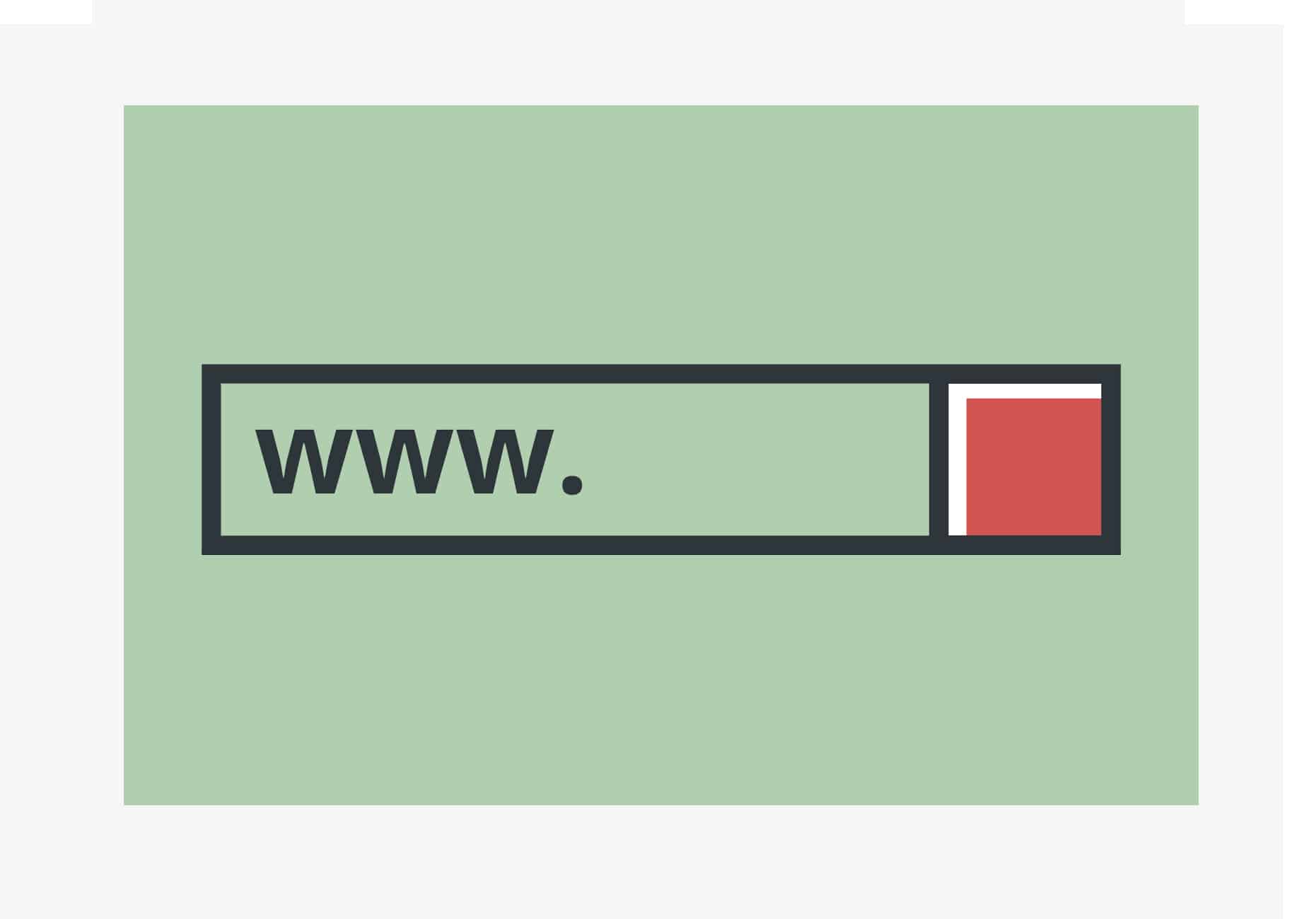The success of your business can hinge on your choice of domain name. It’s closely connected to your online brand—your website, your emails, and all of your digital marketing. It is how your customers remember you and find you online. And once you choose your domain name, it’s difficult to change it. Getting it right the first time will save you serious stress and headaches down the road.
Your domain is both your calling card and the virtual real estate on which you build your business, so it has to be relevant and memorable. Your customers will visit your website often and your domain name choice could directly affect their interaction with your company. In fact, for many businesses, their online address dictates the name of their business, and not the other way around.
To make your domain name shine, and to help you avoid a huge pain down the line, I’ll show you exactly how to choose and secure the right name, right now.
How to Choose a Domain Name for Your Startup
Deciding on your domain name can be an overwhelming choice, and whether you get it right depends on a range of traits, including generic or geographic, made up or real words, short or long, and the types of characters you use. There are now more than 1,000 top-level domain (also known as TLD) extensions and 255 country-code TLDs to choose from.
There are a number of key factors that you should consider when choosing a domain name (and brand name, for that matter!):
Keep it Short
Shorter names are easier to remember, type, and spell. In fact, brands like Apple.com, Examine.com, Gap.com, Dove.com, and Uber.com, have intentionally limited their names to one or two syllables, and/or fewer than eight characters. Notably, 60% of the top reported domain name sales of all time have been one word, .com web addresses, and several one-to-two character .com domains are owned and operated by leading brands. In fact, Elon Musk acquired X.com in July 2017 for an undisclosed price, and Facebook acquired FB.com for USD $8.5 million in 2010.
Be Memorable, Positive, and Intuitive
If people can’t easily recall your name, it will be very hard for them to find your business online and offline. Positive domain names can build an emotional connection with your audience. Intuitive names don’t necessarily spell out what you do, but they can express a sense of how and why you do it, which ultimately ties into your brand story.
Radio Test
When choosing a domain name, make it easy to pronounce, spell, type and pass the radio test. Ask yourself: When you tell someone your domain, or if they were to hear it on the radio, would they know how to spell it and find you online?
Research Trademarks, Copyright, Historical Use, and Translations
It’s very important that your domain name is free and clear of any disputes and has a clean record, so it will not come back to bite you later. In terms of trademarks, start by Googling “your location + trademark search” (e.g. “Australia trademark search”) to find the best resource. In Australia you will be directed to IP Australia, whereas in the United States, you should search the USPTO. Alternately, contact an IP lawyer in your local jurisdiction for complete reassurance, or if you require international checks.
You should also check your domain’s historical use via Archive.org. There, you can review screenshots of the website and perform an exact search of your domain (with quotation marks) via Google. It’s important to make sure that your name was/is not connected to any questionable or illegal activity that could negatively impact your brand and business in the future. Also, check that your domain is not blacklisted by Google. Finally, if your business is internationally-focused and/or you target specific countries, it’s a good idea to check how your name translates in applicable languages. For example, “Coca-Cola” sometimes translates to “bite the wax tadpole” in China (and they are not alone).
Avoid Numbers and Hyphens
Avoid using numbers and hyphens in your domain name, as they will both fail the radio test. Also, as numbers can be spelled out in both letters and numerals, you will need to acquire all variations, because people will not always remember your particular spelling. (Ex: oneworders.com and 1worders.com).
Check the Availability of Social Media Usernames
Ideally, you should secure usernames for your social media profiles that match your domain exactly, as this provides brand continuity and memorability.
Stand Out From Your Competition
Research your competitors and the naming trends in your industry to identify how/where you can differentiate yourself. Take the cryptocurrency space—in a sea of coin + keyword brand names, companies like Earn.com and Circle.com have set themselves apart with authoritative and memorable one word .com domains.
Choose the Right Extension, Most Often .com
The general public are most familiar with .com, and as such, will often default to it when they recall a domain or type it into their address bar. These domains also instill trust and online authority (nothing like a .net address to sketch someone out!). That said, you should also cover your bases with alternative extensions, particularly country codes (if applicable) and complimentary keywords/phrases/combinations.
Do Not Delay—Good Domain Names Sell Quickly!
There are now more than 330 million registered domain names, increasing by 1.1%, every year, so what are you waiting for?
Ultimately, the best domain name for your business is an exact match of the brand name you have chosen with a .com extension, as it creates a memorable experience for your users, as well as brand continuity, trust, and online authority.
 |
 |
 |
 |
 |
 |
Not owning your exact match with a .com extension can cost you lead and email traffic—the last thing you want is to miss an important email from a new customer because they assumed your email address was a .com and it’s not. In more serious cases, you can expose yourself to spoofing. Acquiring key extensions, abbreviations, taglines, keywords, and category-defining domains will protect and strengthen your brand and business.
Is My Domain Name Available for Purchase?
So you’ve come up with the perfect domain name. Now what? You first need to check the domain’s status and ownership details by completing the following exercises:
- First, type your name into the address bar of your web browser—does it resolve to a website?
- Complete a “WHOIS search” via DomainTools.com—are the owner’s details public?
- Search for your domain via a reputable registrar, like GoDaddy.com or NameCheap.com—is the name already taken?

If you answered no to all of the above, chances are your domain name is available for fresh registration and you can purchase it via the registrar of your choice. Congratulations!
On the other hand, if you answered yes to one or more of the above, it’s not game over, but you should carefully consider your strategy moving forward, as several scenarios can play out.
For example, if a domain name appears not in use, parked or redirected, you’ve got a decent chance of purchasing the domain. However, if the owner is using the domain for their email or they’re developing something that will use the domain, it will be more challenging and costly to acquire. If the domain has been developed for a business already, you will definitely have to put down some cash, or even consider another name. Typically in these cases, the owner has little-to-no interest in selling.
If you’re lucky, your name may already be listed for sale via a marketplace, registrar, or possibly even via a sale banner or request form on the domain’s placeholder page.
Aside from the domain’s status, who the owner is will also affect your chances of securing the domain, your strategic approach, and the final price. Owners can vary from beginner to expert domain investors; from startups to Fortune 500 companies; from legal firms to tech departments; spanning worldwide and varying in language, gender, age, and culture.
How to Purchase a Domain Name
At this point, if you are not familiar with domain names, not confident negotiating and settling a sale, and/or would like to remain anonymous, you should consult a domain broker to help you acquire your aftermarket domain.
So significant is the increasing demand for premium domain names, virtual real estate is much like the housing market. It’s unlikely you’d be able to nab your dream home in the heart of a city without a broker, and the same can now be said online.
Reputable and experienced domain name brokers work behind the scenes to secure the perfect home for startups and leading industry brands. They best understand the current landscape and domain valuations, because they have access to unreported sales and trends, ready-to-go legal templates, as well as connections with all the key stakeholders, including domain investors, registrars, escrow providers and domain marketplaces.
Anyone considering hiring a domain broker should do their due diligence by reviewing their qualifications, industry experience, and references. Start by Googling their name in “quotes” followed by the phrase “domain broker” (e.g. “Jen Sale” domain broker). Be sure to also check LinkedIn and other social networks such as Twitter and Facebook, articles (check out DomainInvesting.com), service providers/partners, and most importantly, client testimonials.

On the other hand, you may wish to DIY, in which case, the following tips will come in handy.
Make ‘em an Offer They Can’t Refuse
No, this doesn’t mean you should call in the mafia. Rather, it’s all about doing the research and knowing how much to offer.
Most people would not buy a home in a neighborhood they were not familiar with, nor would they blindly submit an offer for a property without researching what other nearby homes have recently sold for.
Well, the same can be applied when buying an aftermarket domain name. Research comparable domain sale prices, and submit an offer in line with current market values that will get the owner’s attention and demonstrate that you are an educated and serious buyer.
Let’s imagine your dream domain name is “kitty.com”. How do you come up with an offer that is not insulting or embarrassing, and is going to engage the owner in a positive negotiation and ultimately secure your domain?
Complete an advanced search for comparable domain sale prices at NameBio. In this case, you can search for five-character English dictionary .com domain names, excluding hyphens or numbers, that have sold in the past five years (since “kitty” has five characters). The results will give you a sense of what domains of this nature have sold for in the past. Use these results as initial benchmarks. You will also have to take into account the domain’s status and ownership (how the owner is using the domain), as these factors will also affect the valuation and final price.
We discussed this briefly in the last section. For example, if a domain’s owner is using the domain daily as a website and email and it is highly active, you will likely pay more for it than a similar domain that is inactive and parked.

If the seller’s asking price or counteroffers are out of your immediate reach, you could possibly explore a payment plan or lease-to-own, or something a little more creative that may include barter or equity.
Settle Up
Now that you’ve agreed upon a price with the current owner, it’s time to quickly and securely settle the deal.
While you may be tempted to PayPal the owner and cross your fingers that they will follow through with the goods, this can, and sometimes does, go very badly, and many enthusiastic buyers have been left out in the cold.
You should instead use a secure, third-party escrow provider who specializes in domain name transactions, like Escrow.com or Payoneer, keeping in mind that there are associated fees with these services.
Every escrow provider’s platform will be a bit different, but the steps taken for a domain transaction are typically as follows:
- You set up a transaction with your escrow provider.
- The escrow provider will send payment instructions to you (the buyer in this case).
- You will submit payment, which the escrow provider will verify and collect.
- The escrow provider will instruct the seller to unlock the domain and provide the transfer code.
- You will submit a transfer at the registrar of your choice.
- The domain name will transfer into your registrar account (note that it can take up to 7 days).
- You will notify the escrow provider that you now have the domain.
- The escrow provider will release the funds to the seller and close the transaction.
Should you be working with a domain broker, your escrow provider can also disperse your broker’s fee in the final step.
First Steps After Purchasing a Domain Name
Congratulations—you’ve secured your dream domain name!
But before you go poppin’ bottles, you must actually secure your domain.
Firstly, be sure to update the registrant details on your new domain to reflect that you are the new owner. This will also ensure that you will receive any important notifications about your domain name from your registrar.
At this point, if you are concerned about online identity protection, you may wish to apply some privacy to prevent your personal details from being publicly listed via the WHOIS. Keep in mind that public registration will display the name, address, phone number, and email you provide, whereas private registration will not. Here is a side-by-side view of what a public vs. private registration looks like. Note that in the private registration, the address is for Domains By Proxy (a WHOIS privacy service), not the registrant’s address.

Next, you should lock your domain. This will prevent unauthorized changes to your domain, like transferring the domain away to another registrar (and owner!).
Finally, set your domain to auto-renew, because no one wants to be “that guy” who develops the next big thing, only to lose your domain (and credibility) due to expiration. You may only experience some down time (if you catch the issue early), but ultimately, if you fail to periodically renew your domain name, you will lose it per ICANN’s policies.
Land That Dream Domain Name!
The domain name space, while still in its infancy, continues to grow every day. Navigating this very niche sector and the red tape of domain name transactions can be challenging, but by following the above tips you can likely nab the virtual real estate of your dreams and get your business off on the right foot.
- By ensuring your domain is short, memorable, and passes the radio test, you’ll heighten your brand and boost leads and email traffic.
- Ideally, your name should be an exact match .com to instill trust and online authority.
- Once you have chosen your dream domain, find out if it’s up for grabs and approach a good broker for the best advice and results.
- Last but certainly not least, don’t forget to lock your domain, set it to auto-renew and update the registrant details to reflect that you are the proud new owner. And pop that bottle!
Still trying to figure out how to choose a domain name for your business? Having difficulties securing your name? Got a question? Please don’t be shy and comment below.





















